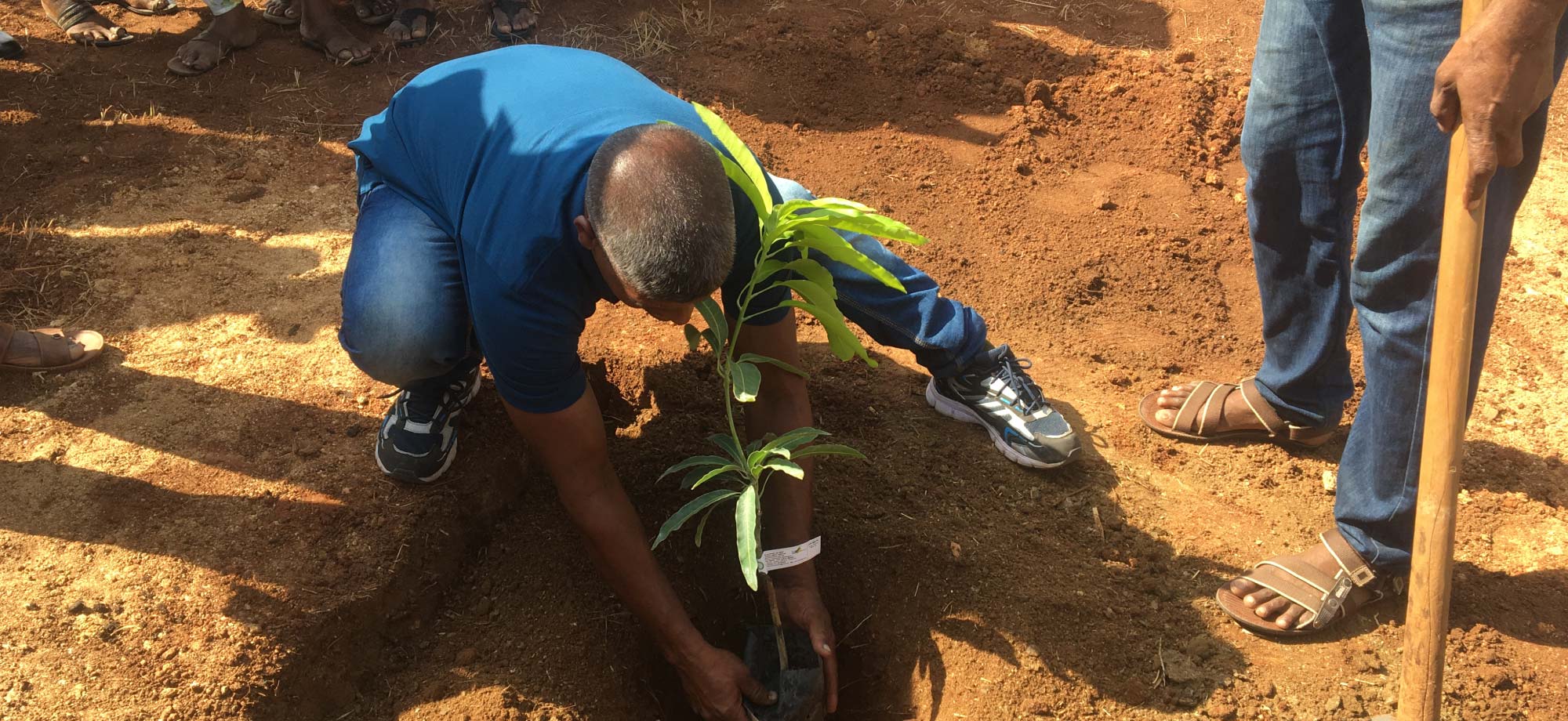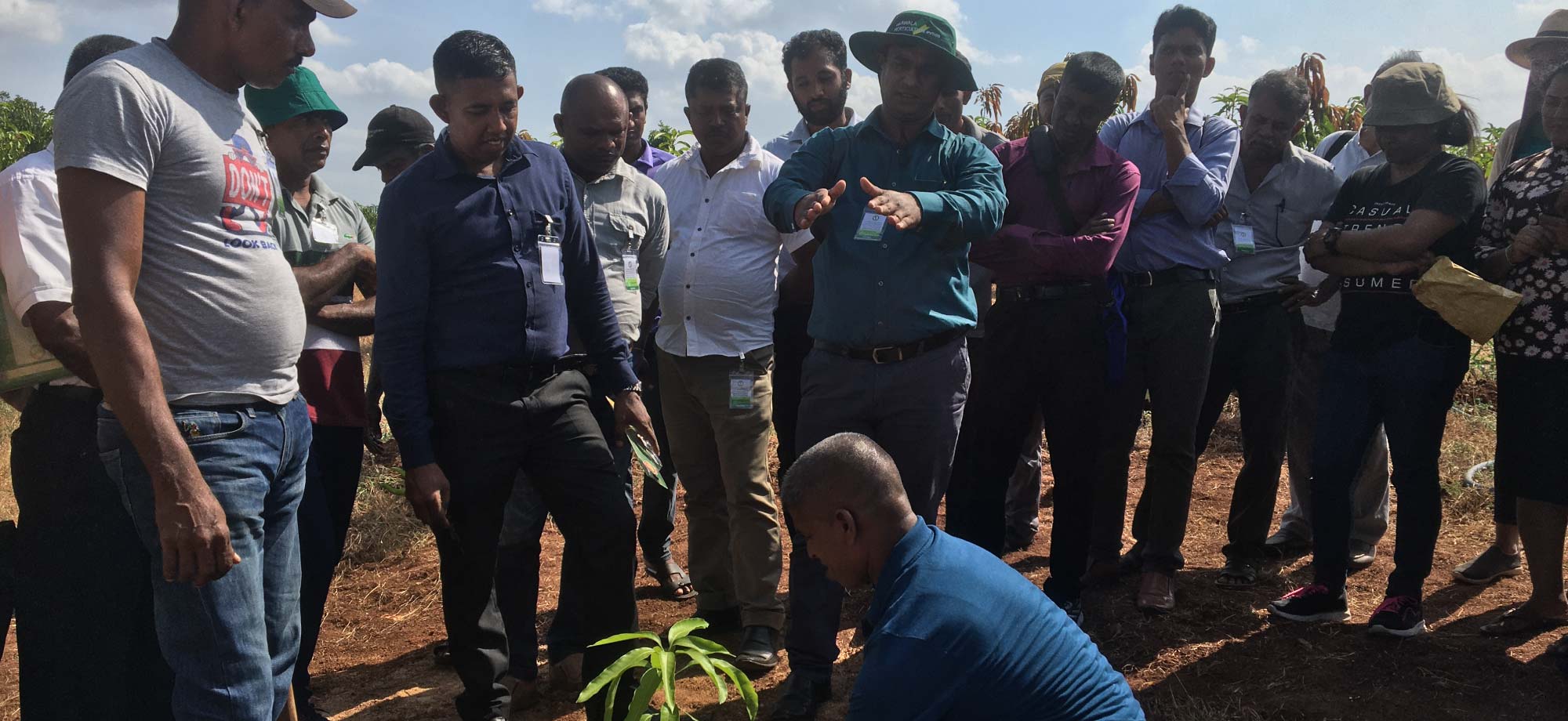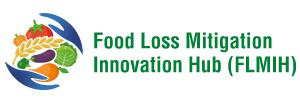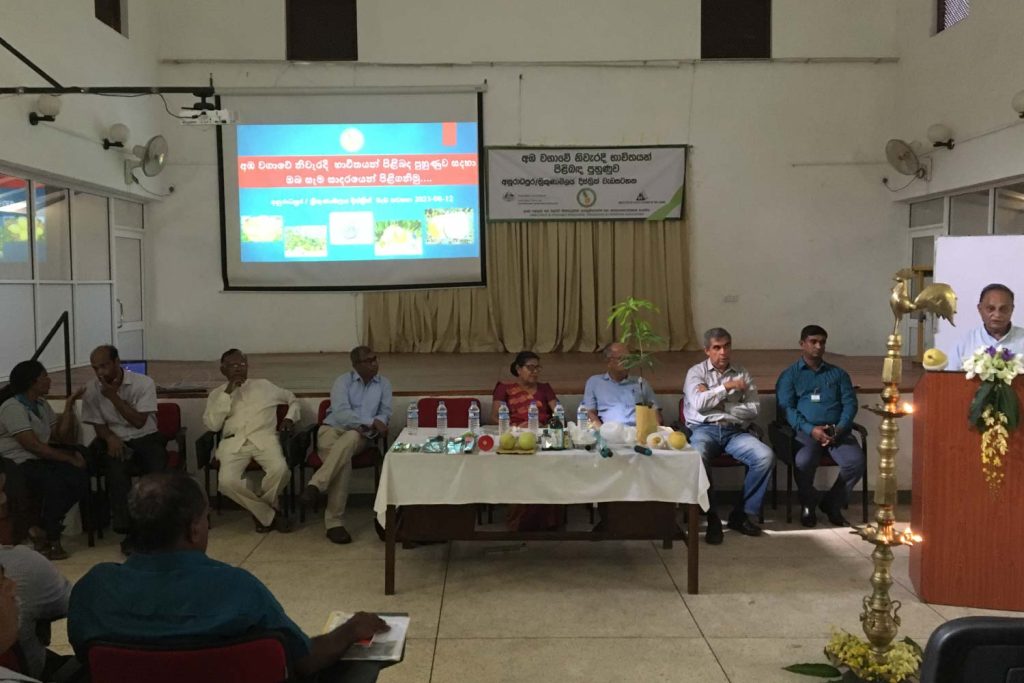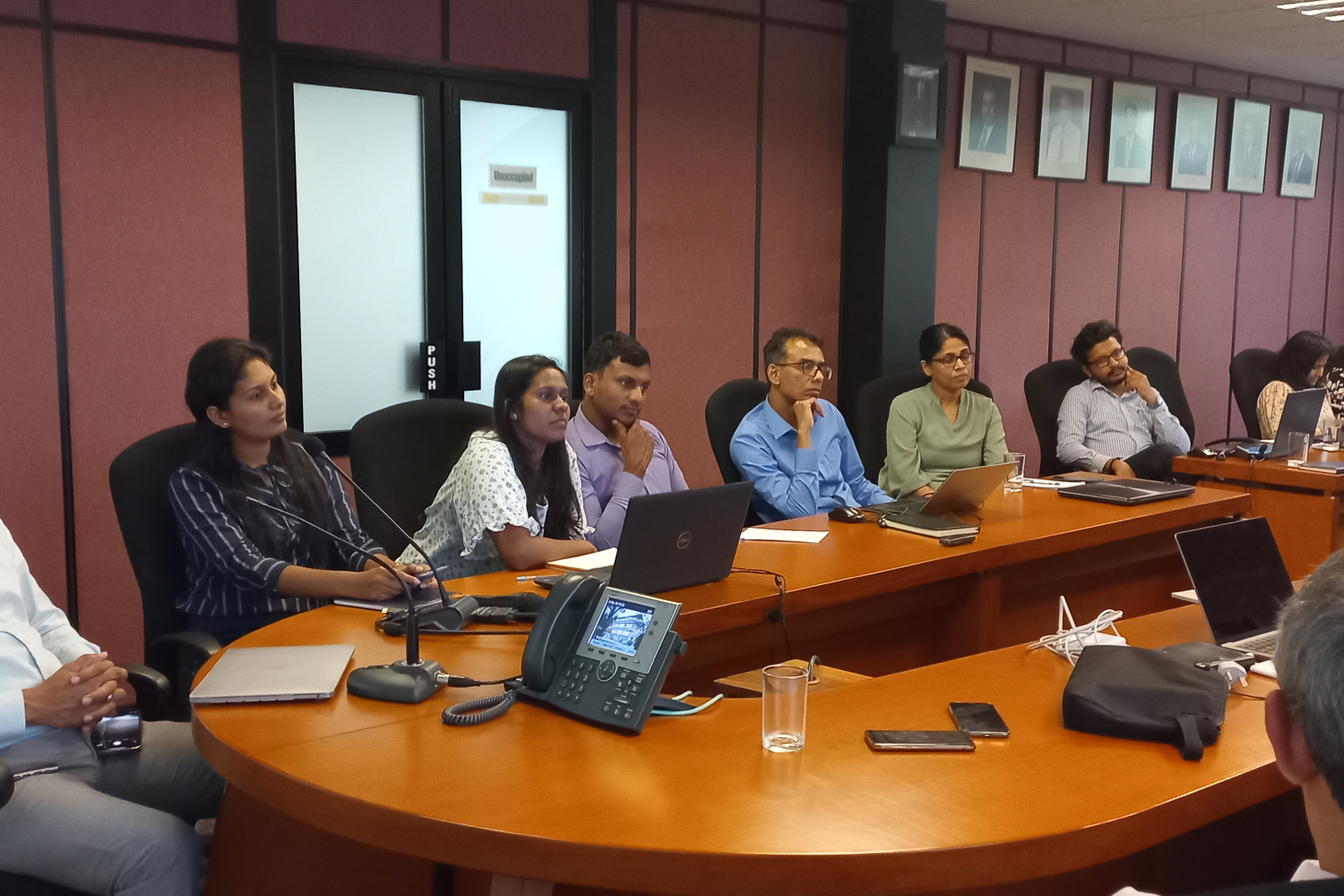On August 12th, 2023, a training and capacity-building session was held at the auditorium of the National Institute of Post-Harvest Management (NIPHM). The primary objective of this session was to disseminate updated knowledge and share best practices with commercial TJC mango growers located in the Anuradhapura and the Trincomalee areas. The session was attended by the representatives of the ACIAR team, including Prof. Thilak Mallwaarachchi, Dr. Nauman Ejaz, and Mr. Chandula Idirisinghe. This programme was organized and conducted by the Lanka Fruit & Vegetable Producers, Processors and Exporters Association (LFVPPEA) and was sponsored through an MOU under the ACIAR project.
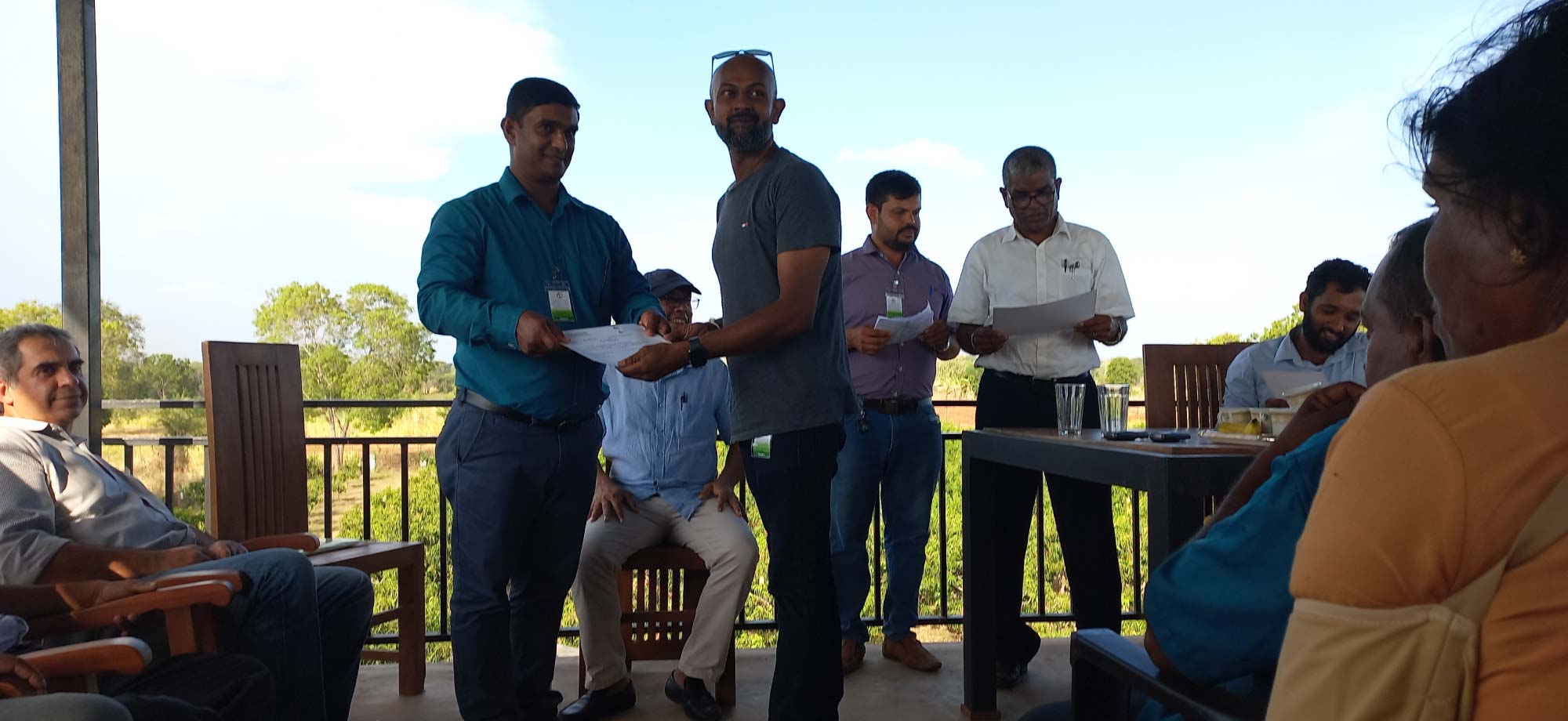
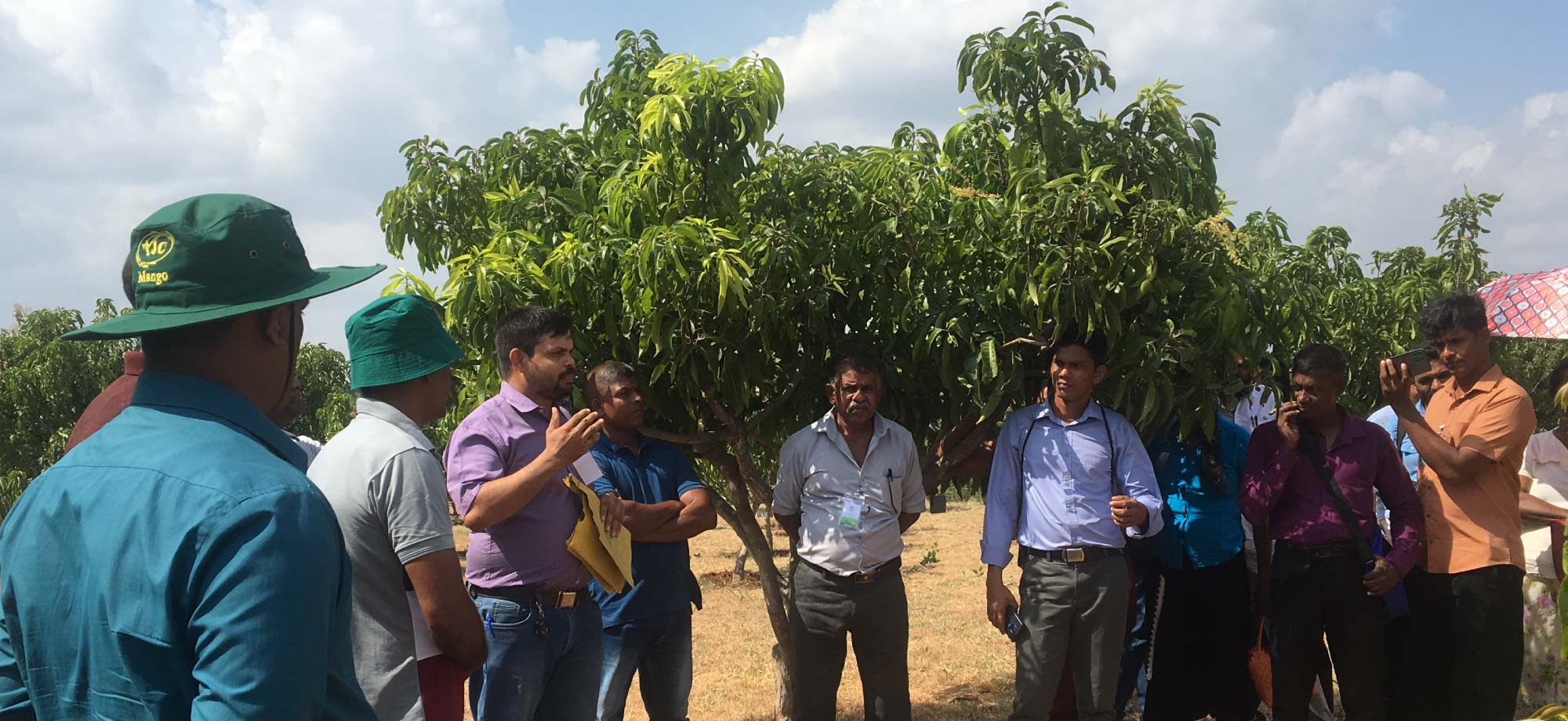
Prior to this session, three similar training sessions had already been successfully organized in Matale, Hambantota, and Moneragala districts, disseminating valuable information to support commercial mango farmers across the country. The event was also participated by Dr. Patrick Nuagawela, an Economist and Specialist in Agriculture Systems, Mr. Suresh Ellawala, Director of Ellawala Export (Pvt) Ltd, and other officials from LFVPPEA, as well as representatives from the Department of Agriculture. The programme consisted of two main sessions. The initial session focused on delivering essential theoretical knowledge about TOM EJC mangos. Specially trained trainers provided insights into the origin of TOM EJC mangos, their characteristics, field establishment of the crop, raising and pre-harvest management, disease and pest control, value addition, and the adaptation of export standards in the production and export process of the produce. Simultaneously a follow-up meeting took place between officials from LFVPPEA and the ACIAR team. This allowed for further discussions and collaboration on the project’s objectives. Subsequently, participants were offered the opportunity for practical field exposure. The field training session had been organized at the Jewelex Agri Kumaragamage plantation, situated 25 km from the southern international airport and southern harbour farm field. Farmers received hands-on training in establishing, pruning, and other essential management practices. Trainers used live examples from the field to educate farmers about pest and disease management. Additionally, the application of Paclobutrazol was demonstrated and replicated in the field to enhance participants’ practical skills. Upon the conclusion of the capacity-building session, certificates were awarded to participants who successfully completed the one-day training. In his closing remarks, Prof. Thilak expressed heartfelt gratitude to both the organizers and participants for their valuable contributions to the session’s success.
